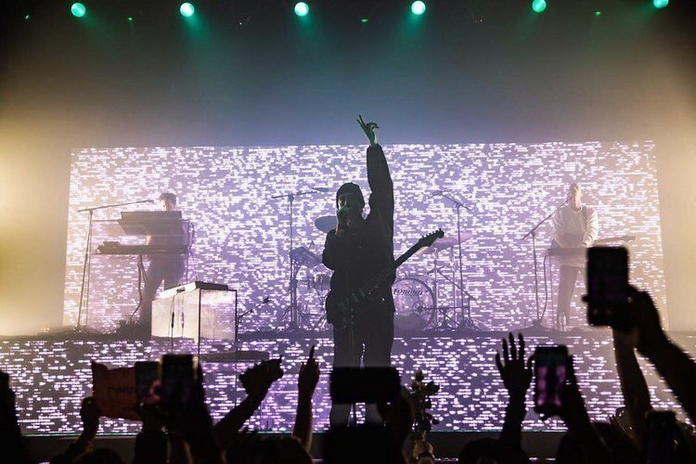Did you know that FSU has a class all about hip-hop? If you didn’t, here’s your chance to dive deep into how hip-hop and society have intertwined for decades.
Hip-hop was born back in the 1970s in New York City, specifically in the Bronx. The hip-hop genre exploded then and is still very much alive in our society today. Dr. Lisa Munson is the professor of FSU’s newest class called the Sociology of Hip-Hop Culture (labeled as IDS 3430). The course will be within the College of Social Sciences and Public Policies. The college’s website states that students will look through the hip-hop subculture, find the messages within the music, and then apply those messages to theories within sociology.
A few weeks ago, I went to a panel held at Tallahassee Community College called Hip-Hop Symposium. The panelists included DJ Demp, Thomas “TJ” Chapman, Adrian “AD” Dickey, Professor Maurice Johnson, Dr. Jian Jones, and Dr. Lisa Munson.
I love a great panel, and this one was informative on the genre of hip-hop. Each panelist spoke about how hip-hop has evolved and what it means to people. The panel was full of thought-provoking questions from the audience about the genre and its cultural relevance.
An audience member asked, “What is hip-hop?” and a panelist responded, “A cultural, artistic response to societal economic oppression.” Munson then added to this statement by saying, “All the aspects, all the symbols, the beliefs — it’s a way of living.” Chapman then concluded by saying, “Hip-hop is a way of life.”
“So for me, as a musician and someone who loves music, someone who’s passionate about social justice, this was just the obvious marriage of those ideas,” Munson said, speaking about the course and why the blend of examining hip-hop through sociology ideas and theories is important.
Also in Dr. Munson’s course, students use scholarly literature and work on research projects that help to bridge literature and hip-hop in a way that students can understand the messages and meanings behind music.
“Folk music, rock music, country music… yeah, there’s been protest music. There’s been music that talked about social situations of course, but I just don’t think anything does it as well as rap music does,” Munson said about why rap works well with teaching.
The panelists spoke about the 1980s and 1990s rappers who had a strong influence on artists who have become popular in the last two decades. The panelists also spoke about how some of this generation’s music is the same in terms of the beats and the rap content.
“The country artists are rapping more than the rappers. They’ve made it to where having bars is wack. There’s no depth in the bars. In the ’90s, everybody had different personalities and was spitting bars,” Johnson said about how rap has evolved.
Adrian “AD” Dickey talked about this generation’s rap. “Hip-hop is a form of expression and that’s how the young kids express themselves. They get it, I guess, and it feels good to them. We all talk about different areas of hip-hop and all that, what we liked then, but it’s changed a lot,” Dickey said. “I think it’s okay to have this new form of hip-hop. I don’t listen to it, but they do and I have to respect it.”
An audience member asked, “Who’s responsible for the integrity of the culture?” Johnson replied, “Hip-hop don’t got a responsibility to do nothing but document what’s going on. That’s what it’s always been.”
Johnson then discussed how hip-hop and rap have a message behind the bars. It isn’t just music, but also information about how people were living and what they were going through in their lives.
“[Hip-hop] was like the Black CNN. That’s what it was. It was telling you what was going on in Black neighborhoods, and it still does, but it’s a little bit embellished. I think authenticity is another forgotten attribute in the culture because you can rap about a life you’ve never lived before,” Johnson said.
The course taught by Dr. Lisa Munson shows the message behind the music matters and is important to look at through the lens of sociology to see the correlation between rap and what has occurred in American society. Make sure to sign up for this class next semester and learn to appreciate hip-hop in a way you might not have before.
Want to see more HCFSU? Be sure to like us on Facebook and follow us on Instagram, Twitter, TikTok, and Pinterest!


